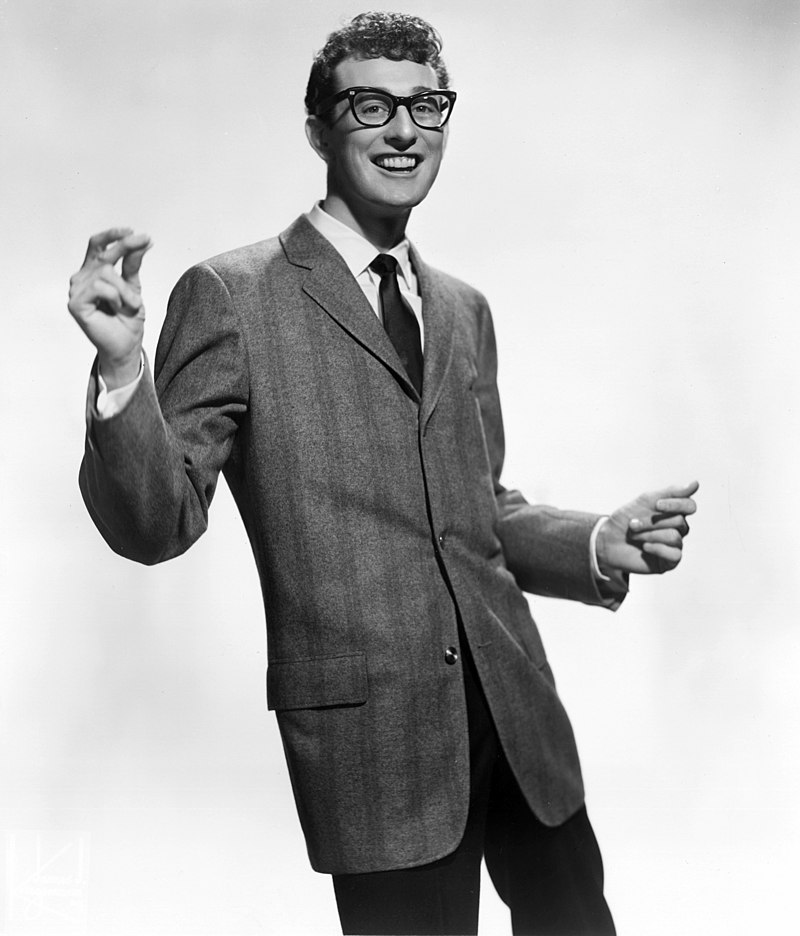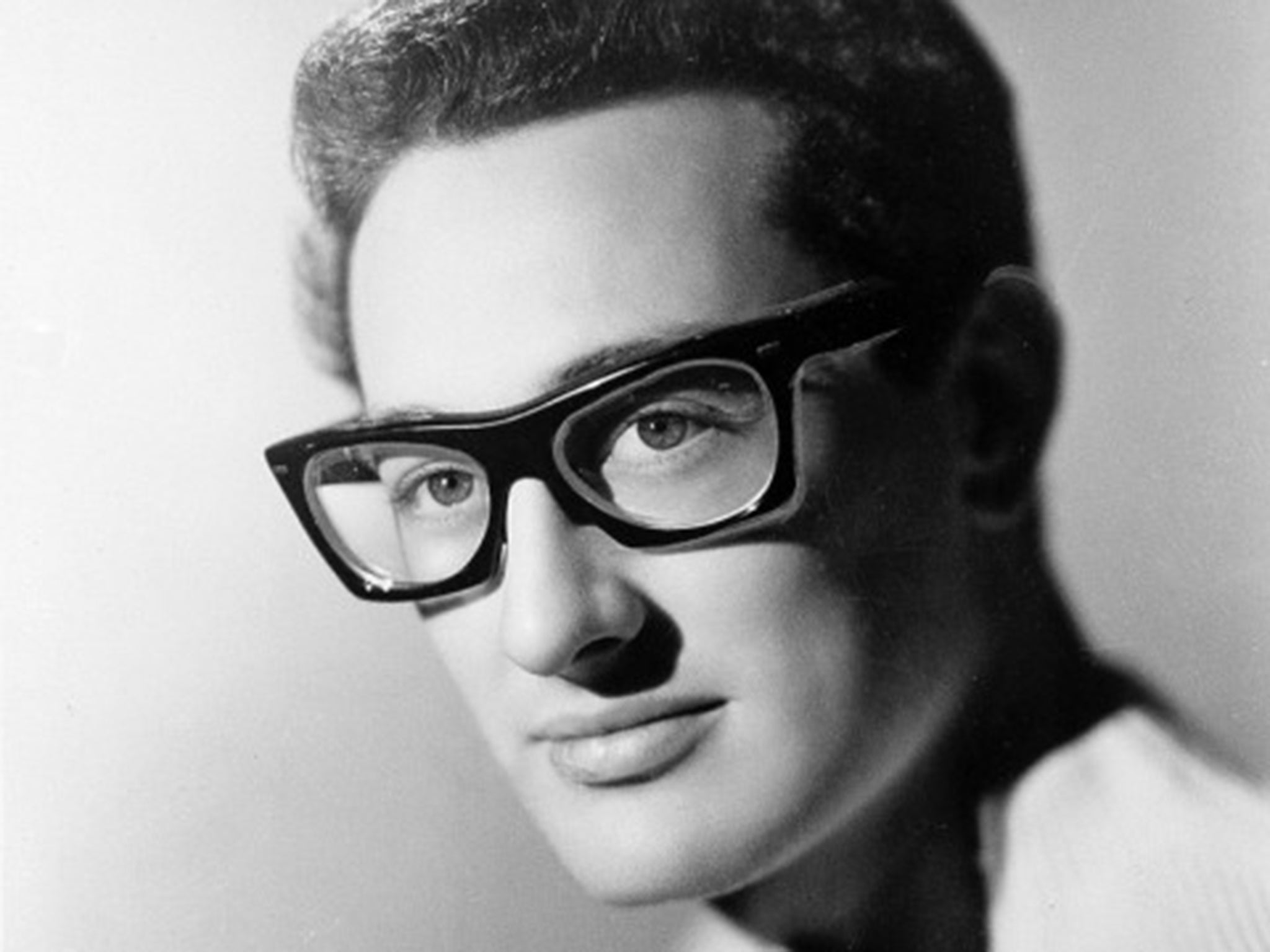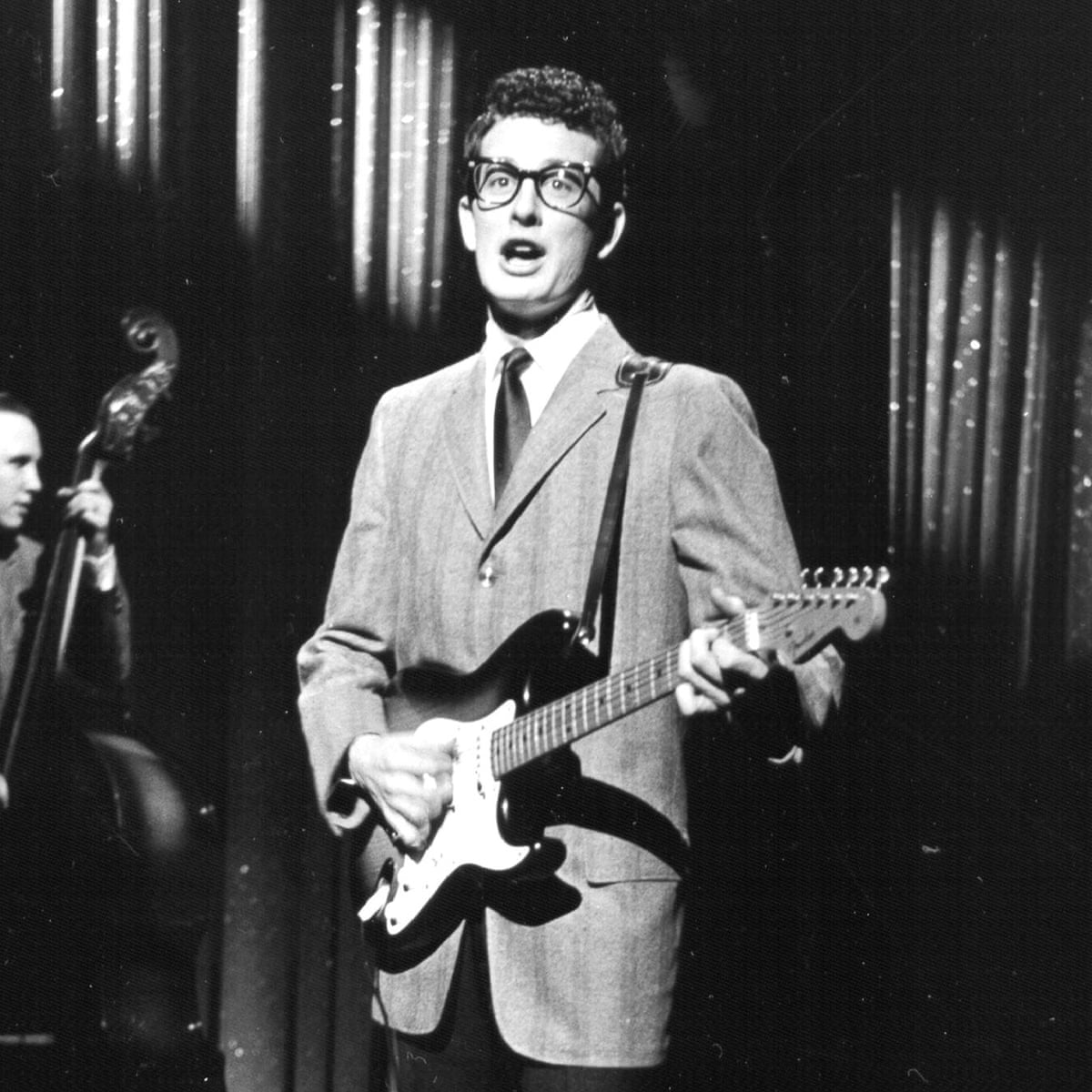Buddy Holly
Buddy Holly

Buddy Holly, born Charles Hardin Holley, emerged as a pioneering figure in the mid-1950s rock and roll scene. Hailing from Lubbock, Texas, Holly was born into a musical family during the Great Depression. He developed his musical talents alongside his siblings, learning to play the guitar and sing.
Holly's early exposure to gospel, country, and rhythm and blues music shaped his distinctive style. He began making appearances on local television in 1952 and formed the duo "Buddy and Bob" with his friend Bob Montgomery in 1953. Holly's career gained momentum after he opened for Elvis Presley in 1955, which inspired him to pursue music full-time.
After catching the attention of Nashville scout Eddie Crandall, Holly secured a contract with Decca Records in 1955. However, he was dissatisfied with the studio's direction and sought out producer Norman Petty in Clovis, New Mexico. Under Petty's guidance, Holly recorded a demo of "That'll Be the Day," which became a breakout hit for his band, The Crickets, in September 1957.
The success of "That'll Be the Day" was followed by another hit, "Peggy Sue," and the release of the album "The 'Chirping' Crickets." Holly's popularity soared, and he made appearances on influential shows like The Ed Sullivan Show. He embarked on international tours and assembled a new band featuring notable musicians like Waylon Jennings and Tommy Allsup.
Tragically, Holly's promising career was cut short in February 1959 when the plane he chartered crashed, claiming his life along with Ritchie Valens, The Big Bopper, and pilot Roger Peterson. This event, immortalized as "The Day the Music Died," became a poignant moment in music history.
Despite his short-lived career, Buddy Holly's impact on popular music was profound. He pioneered the traditional rock-and-roll lineup and influenced countless artists, including Bob Dylan, the Beatles, and the Rolling Stones. His contributions earned him a place in the Rock and Roll Hall of Fame and a lasting legacy as one of the greatest artists in rock history.

Buddy Holly, originally Charles Hardin Holley, was born in Lubbock, Texas, on September 7, 1936. He was the youngest of four children born to Lawrence Odell "L.O." Holley and Ella Pauline Drake. From a young age, Holly showed an interest in music, nurtured by his family's musical background and his exposure to various genres like gospel, country, and rhythm and blues.
Holly's musical journey began when his elder brothers introduced him to instruments and performances. Despite early attempts at the violin, he eventually settled on the guitar, inspired by his brother Larry's return from military service with a guitar in hand. Holly's passion for music intensified, and he immersed himself in the sounds of artists like Hank Williams, Jimmie Rodgers, and Elvis Presley.
In high school, Holly formed friendships with fellow musicians like Bob Montgomery, with whom he formed the duo "Buddy and Bob." Their musical influences ranged from country to rhythm and blues, reflecting the diverse sounds Holly encountered through late-night radio stations.
After graduating from high school in 1955, Holly made the bold decision to pursue music full-time, influenced by witnessing Elvis Presley's electrifying performances. His talent caught the attention of Nashville scout Eddie Crandall, leading to a recording contract with Decca Records in February 1956.
Despite initial recording sessions with Decca, Holly grew frustrated with the lack of creative control and the direction imposed by the producers. Eventually, Decca decided not to renew his contract in January 1957, leaving Holly with limited options for his musical career.
Throughout his journey, Holly's last name was misspelled as "Holly" by Decca Records, leading him to adopt the name "Buddy Holly" professionally. Despite setbacks, Holly's determination and talent laid the foundation for his future success and his enduring legacy as a pioneer of rock and roll.
After his disappointing experience with Decca Records, Buddy Holly sought out Norman Petty, the producer behind successful records like Buddy Knox's "Party Doll" and Jimmy Bowen's "I'm Stickin' with You." Accompanied by Jerry Allison, Larry Welborn, and Niki Sullivan, Holly visited Petty's studio in Clovis, New Mexico, to record a demo of "That'll Be the Day," a song they had previously recorded in Nashville. With Holly now playing lead guitar, they achieved the sound they desired.
Impressed by the demo, Brunswick Records executives decided to release "That'll Be the Day" without re-recording it. "I'm Looking for Someone to Love" served as the B-side, and the single was credited to The Crickets. Although Holly was still under contract with Decca, Brunswick's basic agreement allowed him artistic control and financial responsibility for future recordings.
The revelation that Brunswick was a subsidiary of Decca cleared the legal path for future recordings under the name Buddy Holly. Recordings credited to The Crickets would be released on Brunswick, while those under Holly's name would come out on another subsidiary label, Coral Records. This arrangement allowed Holly to concurrently hold recording contracts with both labels.
"That'll Be the Day" was officially released on May 27, 1957. Petty arranged for Holly and The Crickets to tour with Irvin Feld, who had taken notice of the band after their song appeared on the R&B chart. They performed in Washington, D.C., Baltimore, and New York City, including a stint at the Apollo Theater from August 16 to 22. Initially met with skepticism, the band won over the audience by incorporating "Bo Diddley" into their set. By the end of their Apollo performances, "That'll Be the Day" was climbing the charts.
Encouraged by the single's success, Petty began preparations for two album releases—one for Holly as a solo artist and another for The Crickets. Holly also made a memorable appearance on American Bandstand hosted by Dick Clark on ABC before departing from New York, where the band forged a friendship with The Everly Brothers.
References
- Tobler, John The Buddy Holly Story, published 1979 Beaufort Books
- ^ Driggars, Alex (April 8, 2022). "Larry Holley, Eldest Brother of Buddy Holly, Dies at 96". Lubbock Avalanche-Journal.
- ^ "Travis Holley, One of Buddy's Brothers, Dies Thursday (Playbill by Kerns Blog)". lubbockonline.com. Archived from the original on August 6, 2017. Retrieved December 30, 2016.
- ^ "Patricia Holley Obituary (2008) - Surrey Advertiser". www.legacy.com.
- ^ Buddy Holly: A Biography By Ellis Amburn pg. 10
- a b Gribbin 2012, p. 12.
- ^ Gribbin 2012, p. 13.
- ^ Gribbin 2012, p. 14.
- ^ Norman 2011, p. 34.
- ^ Schinder & Schwartz 2007, p. 80.





















